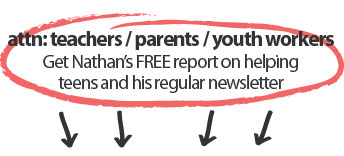The first key to developing your emotional intelligence as a teacher is: SELF AWARENESS
Daniel Goleman calls self awareness the ‘keystone’ of emotional intelligence.
In the 4 Quadrant model of Social + Emotional Intelligence, that I teach when I work with schools to develop a culture of well-being and emotional intelligence, the first quadrant is all about self awareness.
The competencies associated with self-awareness are:
- Emotional self awareness: recognising your emotions and the impact they have on your life.
- Accurate self-assessment: identifying your strengths and limitations.
- Personal Power: knowing your self worth and your ability to meet life’s challenges, being true to yourself and living the life you choose.

How EMOTIONALLY AWARE are you?
- Do you know your strengths and your limitations?
- Are you aware of your “hot buttons”?
- How’s your sense of self worth, confidence and assertiveness?
- Can you remain calm and protect connection in the midst of challenge and confrontation?
Your emotions are a valuable source of insight and information about yourself, others and the situations around you.
Have you ever felt like your brain was hijacked in a moment of emotion and you reacted to a situation in a way that just ‘wasn’t you’?
That’s what Daniel Goleman calls an ‘Amygdala Hijack’.
This occurs during the fight, flight or freeze stress response. It is an immediate and overwhelming emotional response out of proportion to the stimulus because it has triggered a more significant emotional threat.
The amygdala is the part of our brain that handles emotions.
During an Amygdala Hijack, the amygdala “hijacks” or shuts down the neo-cortex.
Our neo-cortex is responsible for logical, rational thinking, conscious thought and sensory perception.
Your ability to be aware of your emotions and the stimulus that trigger them (your hot buttons) allow us to manage our stress levels and catch ourselves before we end up in irrational reactions that we often regret.
It’s extremely important to widen the gap between impulse and action; and that’s exactly what practices like mindfulness and self awareness does. They help us to get a moment or two where we can change our relationship to our experience, not be caught in it and swept away by impulse, but rather to see that there’s an opportunity here to make a different, better choice.
Here are some simple strategies and activities that will help you to develop your self awareness and increase your emotional intelligence:
EMOTIONAL SELF AWARENESS ACTIVITIES
- Create a feelings journal, record your emotions and feelings through out the day, any events or activities that may have had an impact on those feelings, how your body felt and any results or consequences that ensued. Regularly check in on your feelings. During the course of the day, schedule brief but frequent check–ins on your emotional state as well as what your body might be feeling or trying to tell you. If you find yourself clenching your teeth, tensing your shoulders, feeling worn out or worn down, stop and ask yourself what your body is trying to tell you – are you feeling strained? Stressed? Anxious? Fearful? Overwhelmed? Discouraged? Burned out?
- Name your emotions and connect them specifically to a source or to a situation, concern, or issue. “Listen” to what your emotions might be telling you in that moment Use the information that bubbles up from inside, listen to your intuition to gain insight that could guide you in dealing with the issue or challenge Take the time to be introspective, to listen to that quiet inner voice.
- Put aside some of your goal-oriented activities and think.
- Take long walks, know your core values, and especially stop thinking of your emotions as irrelevant or messy. Our emotions are an essential source of valuable information.
ACCURATE SELF ASSESSMENT ACTIVITIES
- Honestly analyse your strengths and weaknesses.
- Ask others for their insights on your strengths and weaknesses (or ask a someone to interview the people around you, a coach or a mentor); compare your list with others’ lists.
- Maintain an openness and commitment to ongoing learning, growth and improvement Focus on reflection and criticism as an opportunity to grow and develop into a better version of yourself – don’t take it personally.
- Be realistic in taking on new projects, setting new goals and objectives
PERSONAL POWER ACTIVITIES
- Make a list of the things you’ve accomplished in your life; make a sincere effort to recapture the feelings you experienced when you achieved your goals.
- Identify the things you excel in, tap into the emotions associated with those strengths.
- Examine any causes of lack of confidence or lack of personal power, i.e., a lack of skill in a new position? If so, seek out formal or informal training to boost your confidence. Is it a lack of experience? Seek the help of a mentor who will provide you some guidance.
- Learn how to say no with confidence and grace.
- Set and keep personal boundaries.
- Practice failing and failing well – Forward, Frequently and Fast!
- Identify those circumstances and situations where you can have influence and commit to making an impact in those areas.
By developing each of these three competencies (Emotional Self Awareness, Accurate Self Assessment and Personal Power) you will be well on your way to increasing your level of social + emotional intelligence and your effectiveness as a teacher, mentor and leader.
Each of the 26 core competencies which are measured to determine your social + emotional intelligence can be improved and developed. Start with these 3 by recognising areas you need to develop and intentionally making an effort to develop or strengthen that aspect of yourself.
Emotionally intelligent teachers put aside quality time for reflection, growth and review and my suggestion as we continue on with this series would be to timetable some time to implement some of these activities into your days. Timetable some time each day for self reflection and debriefing particularly with regards to your own emotions and feelings, your interactions with students and teachers and any opportunities for growth.
If you’re a school leader, co-ordinator or principal these will be a great resource for you to use with your leadership teams to bring a focus to developing a culture of emotional intelligence in your staff.
Feel free to share them around, email to other staff and please share through social media using the share buttons below.
Of course let me know if I can make myself available to run more in depth assessments and training with your teams around Social + Emotional Intelligence, Motivation, Engagement and Well Being.

